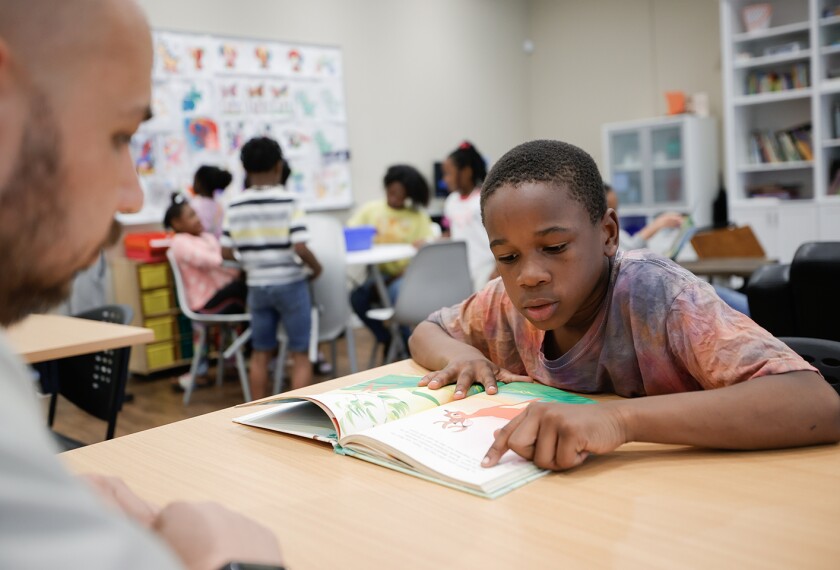While many public school students remain months or years behind academically, significantly fewer are participating in supplemental academic programs over the summer and this school year.
Fewer than 1 in 5 K-12 students participated in academic programs in public schools this summer, and about 1 in 8 are taking part in remedial or enrichment activities after school in 2023-24—both down from the last school year, according to the latest results from the federal School Pulse Panel, which came out this week.
The National Center for Education Statistics uses the panel data collection to take the monthly “pulse” of more than 1,400 K-12 schools in areas such as academic recovery, staffing, and educational activities to gauge their progress in recovering from pandemic learning disruptions.
Part of the problem is uneven and changing access. Large schools and those serving the highest concentrations of low-income students or students of color have increased their after-school offerings, with roughly 3 in 4 now providing academic enrichment or assistance outside the school day. Eighteen percent of students in high-poverty schools and 19 percent of students serving high concentrations of students of color participated in academic programs after school.
But fewer small and rural schools are offering such after-school programs in 2023-24 compared to 2022-23 school years.
“Sadly, the decline in access to after-school and summer programming is consistent with what we have been seeing—and we fear it will get worse” when federal pandemic recovery aid ends next school year, said Jodi Grant, the executive director of the Afterschool Alliance, a nonprofit advocacy group. “The parents of 25 million students want after-school programs for their children but don’t have access. We need to find ways to include more students, instead of reducing opportunities.”
While the Biden administration urged schools to use federal pandemic relief money to create summer and after-school programs to help students advance academically, only about 1 in 4 schools reported using pandemic recovery aid to support after-school academic assistance.
In a separate survey by AASA,the School Superintendents Association, more than half of district leaders said they would cut back or end enrichment and summer-learning programs in the 2024-25 school year, when relief funding ends.





